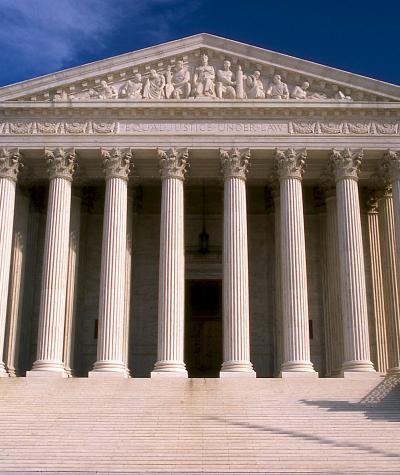In 2016, voters across the political spectrum cast ballots for change—and to protest the rising influence of big money in our politics. But in Judge Neil Gorsuch, President Trump’s nominee to fill the late Justice Scalia’s vacant seat, voters worry they are getting a justice who will simply perpetuate the corrupting influence of money on government. The majority of voters in 2016 said the system was broken—particularly Trump voters, although this sentiment was consistent across all groups. Voters indicated that “can bring change” was the candidate attribute that mattered most to their decision on November 8; in fact, it was the deciding attribute in CNN exit polling.
In poll after poll prior to the election, voters also repeatedly identified unchecked political spending as a principal cause of their dissatisfaction.
Citizens United v. FEC, the 2010 decision that overturned the 60-year-old ban on corporate expenditures in elections and reversed decades of standing Supreme Court precedent, is reviled by voters of all stripes. As many as 80 percent of Republicans and 83 percent of Democrats believe Citizens United was wrongly decided and that corporations should not be campaigning for candidates. Campaign finance might be the last overwhelmingly bipartisan issue in these divided times.
This is all a long way of returning to the question: how exactly have we ended up with Trump’s nominee, Judge Gorsuch of the Tenth Circuit Court of Appeals? His past decisions confirm he is a friend to big money. He has even hinted that laws that limit direct contributions to candidates—literally, dollars going directly into politicians’ pockets—are constitutionally suspect. It seems all but certain that he would cast another vote to affirm Citizens United.
He is the opposite of protest.
Why do voters say the system is broken but then vote those in who preserve policies that further degrade the system and insulate officeholders from accountability?
At one point, Trump committed to “draining the swamp.” He rightfully ridiculed those in the pockets of big donors. “[G]ood luck,” he tweeted “to all of the Republican candidates that traveled to California to beg for money from the Koch Brothers. Puppets?”
Time will tell whether this was lip-service or a call for reform.
But there is no reason to believe that Trump is particularly enamored with big donors or the excesses of the current system. Instead, he and his voters seem to have fallen victim to the strange assortment of beliefs that comprise what we will call “Roberts Court” jurisprudential orthodoxy. It is a grab bag of pro-corporate, pro-gun, socially conservative positions (notwithstanding Justice Kennedy’s swing voting)—plus a strong hostility to campaign finance measures.
But the connection between a vote against abortion or gun regulation, on the one hand, and a vote against contribution limits, on the other, is tenuous at best. And certainly polls indicate that most conservative voters support the first decisions while strongly opposing the latter.
Nor is it immediately obvious how Citizens United is compelled by tenets of traditional conservative jurisprudence, such as stare decisis, namely respect for past precedent, or originalism, the interpretation of the Constitution according to the understanding of its terms at the time it was drafted. To the contrary, Citizens United required the court to overturn two of its past decisions, and the idea that corporations—which barely even existed in colonial America—were persons for the purpose of the First Amendment would have been laughable to the Framers of the Constitution.
And this was not always the approach taken by conservative justices.
Former Chief Justice William Rehnquist, appointed by President Nixon and promoted by President Reagan to Chief, supplied the fifth vote to uphold a corporate spending restriction in Austin v. Michigan Chamber of Commerce (1990)—one of the two decisions that Citizens United had to reverse in order to throw out the federal corporate expenditure ban.
Both Chief Justice Rehnquist and Justice Sandra Day O’Connor, another Reagan appointee, joined the six-Justice majority in Beaumont v. FEC (2003) to uphold the federal restriction on direct contributions from corporations to candidates and parties.
Indeed, the only reason why the court reversed its past precedents—and issued the Citizens United decision now opposed by four of five Americans—was that Justice O’Connor stepped down in 2006 and was replaced by a different type of conservative judge, Samuel Alito. There was no change in the facts on the ground. There was no C-change in legal thinking: indeed the court had upheld the federal law it invalidated in Citizens United a mere seven years earlier. There was simply a change in personnel.
And the addition of this new conservative, Justice Alito, resulted in campaign finance decisions that not even conservative voters supported.
The addition of Judge Gorsuch to the high court will likely also result in decisions that further empower big money that run counter to both public opinion and the court’s own longstanding precedents.
Gorsuch’s views are not remotely reflective of the perspective of the majority of voters—including Trump voters—who believe the political system is rigged. His future rulings on money in politics will likely please no one—no one save the politicians and moneyed interests who benefit from the “rigging” and want to keep it that way.


